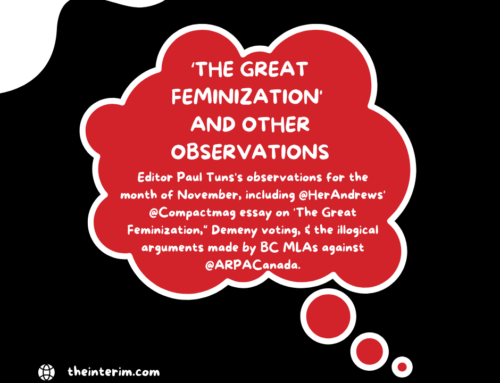
Hamilton father of two Steve Tourloukis sued his school board to uphold his parental rights. He lost in 2016 and appealed the decision.
The latest battle in the sever-year war between Steve Tourloukis and the Hamilton Wentworth public school board over what the father of two claims is his right to receive advance notice when and how his children will be taught about controversial topics was an Ontario appeal court hearing last month.
In 2010, Tourloukis requested that his local school inform him when his children would be exposed to LGBQT issues, as well as abortion, the occult, or cultural relativism. The school refused and he sued to uphold his parental rights in 2012.
Tourloukis made it clear in his 2012 legal challenge he did not object to his children being taught facts, or discussions and opinions by classmates on these subjects. He did object to teachers making “value judgments” in class, such as presenting homosexuality as natural, or abortion as morally acceptable. His lawyer, Albertos Polizogopoulos, argued the board’s refusal to grant Tourloukis’ request violates his Charter right to religious freedom, because he believes his Christian faith obliges him to protect his children from “false teachings” and “not lead his children into sin.”
Last November, Ontario Superior Court Justice Robert Reid ruled the board did violate Tourloukis’ Charter rights, but the violation was “reasonable” given the competing Charter “values” of “inclusivity, equality and multiculturalism,” and public school boards’ statutory obligations. Reid also suggested Tourloukis could pull his children from public schools.
At the appeal hearing, Tourloukis and his lawyer faced legal teams from each of the school board, the Ontario government, and the Elementary Teachers’ Federation of Ontario. The Christian Legal Fellowship intervened on Tourloukis’ behalf.
Polizogopoulos asked Appeal Court Justices Peter Lauwers, Bradley Miller, and Robert Sharpe to reverse Reid’s decision.
“This appeal is about protecting the rights of parents to direct their children’s education, and to protect the religious freedom of parents and their children,” states Tourloukis’ appeal factum.
The one-day hearing focused on whether LGBQT issues are taught in public schools in a “values-neutral” way. Lawyers opposing Tourloukis referred to the Equity and Inclusivity Education Strategy that then education minister Wynne implemented in 2009. The board’s lawyer argued a public school is not allowed to “indoctrinate” students, but that Ontario’s public schools have statutory obligation to create safe schools, including the EIES, Policy Memorandum 119, and the 2012 Accepting Schools Act, or Bill 13. Accommodating Tourloukis, they argued, would “directly impact the ability of Ontario public schools to provide students with a positive, inclusive, and supportive educational environment.” Ontario government lawyer Josh Hunter said allowing the Tourloukis children to leave class would “undermine the board’s message that it is important to accept, welcome, and celebrate diversity” and would be “harmful to the rights of other students to feel accepted and welcomed.” ETFO lawyer Kate Hughes argued teachers are mandated by law to embed positive examples of homosexuality, lesbianism, transgenderism, and queerness throughout the curriculum, and to teach children not just to “tolerate” LGBTQ lifestyle, which has a negative connotation, but to “honour and respect” and “celebrate” it.
Campaign Life Coalition’s Jack Fonseca attended the hearing and he said the ETFO lawyer’s submission was “a brazen, unashamed admission that indoctrination was the goal.”
Judge Lauwers questioned Polizogopoulos as to why he had no affidavit evidence of teachers giving “value judgments” in class.
“This is an important court case,” says Lou Iacobelli, president of the Parental Rights In Education Defense Fund, which is providing moral and material support for Tourloukis. “If the Charter of Rights and Freedoms and the Constitution are used to legitimize beyond question ‘inclusive and diversity’ education, then Canadians have little protection from the power of the state,” Iacobelli wrote in his blog.
Fonseca said “it’s impossible to predict how the court will rule,” but he was worried about the “unduly harsh approach” two of the judges took towards arguments presented by Polizogopoulos. “The judges did not seem willing to take seriously, Mr. Tourloukis’ claim that his Charter right to religious freedom had suffered injury,” said Fonseca. “They did not even seem to accept the claim that it was at risk of injury.”
The three justices reserved their judgment.




